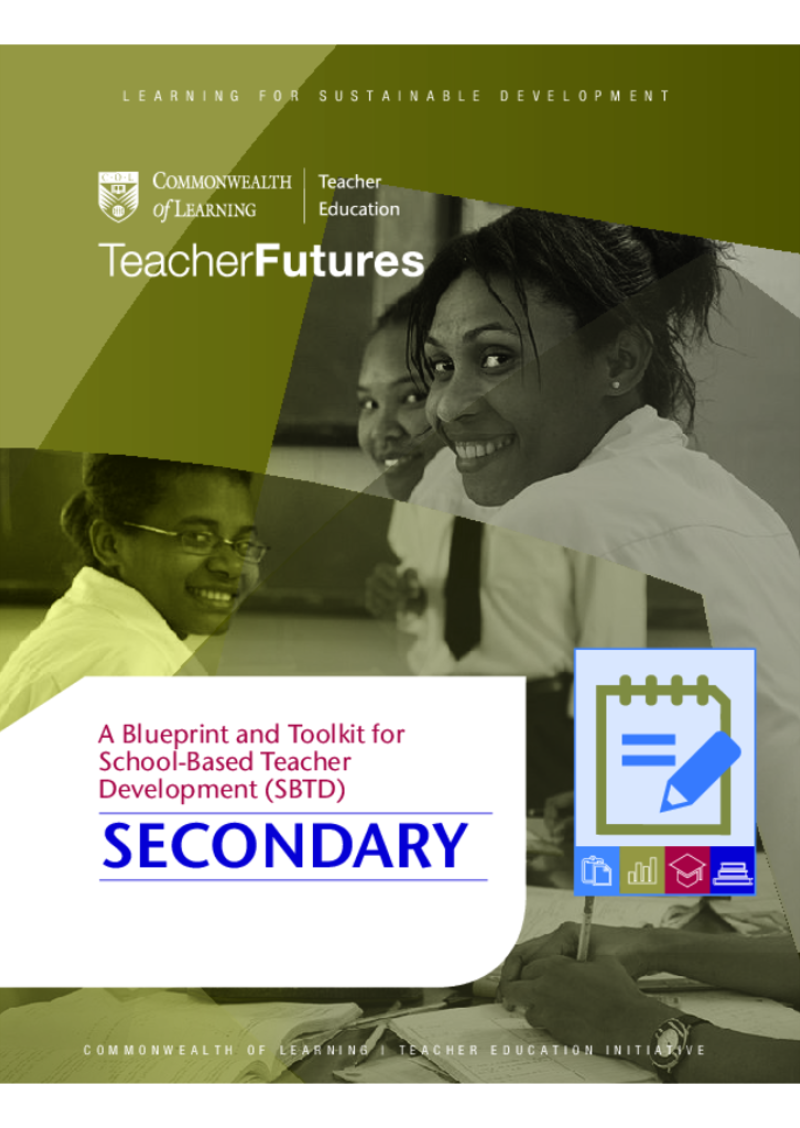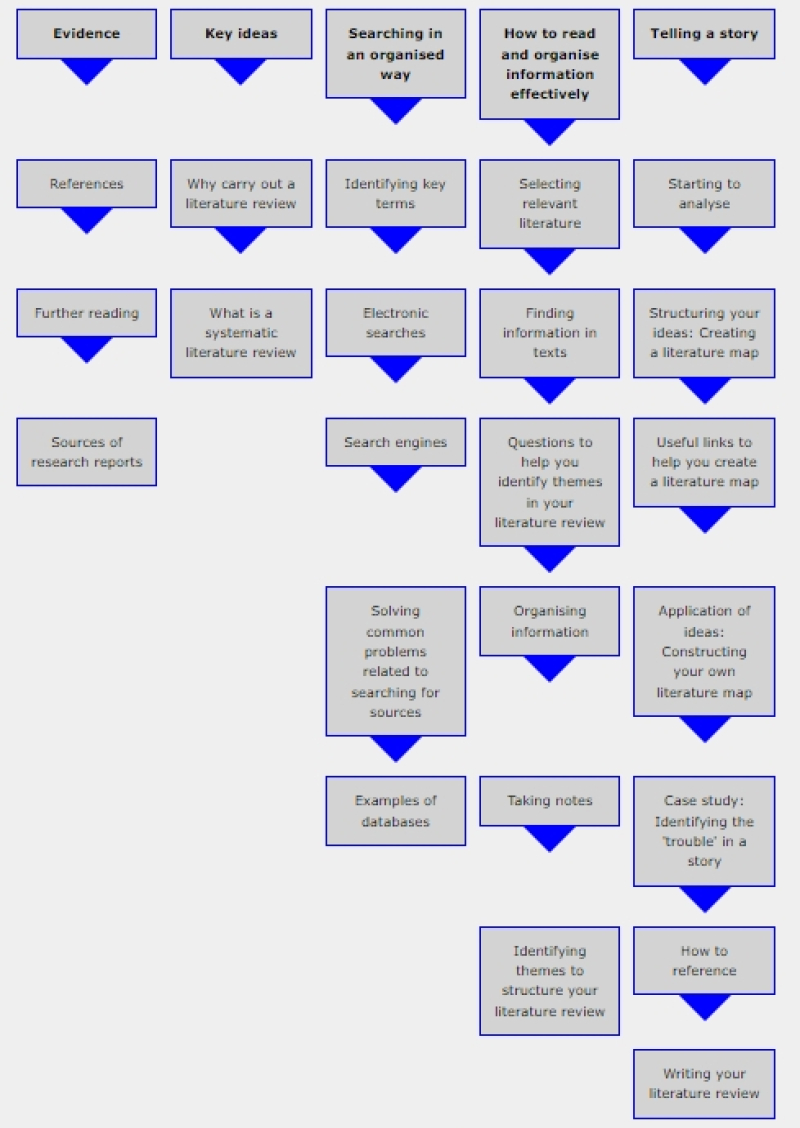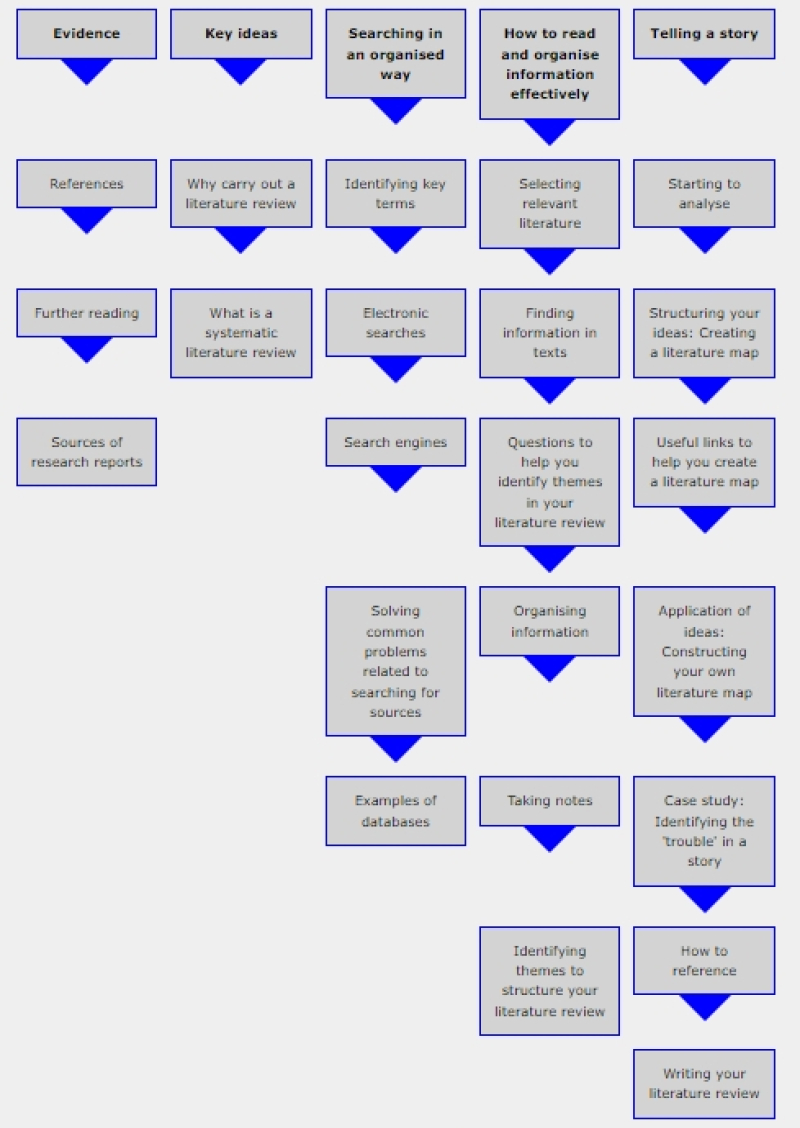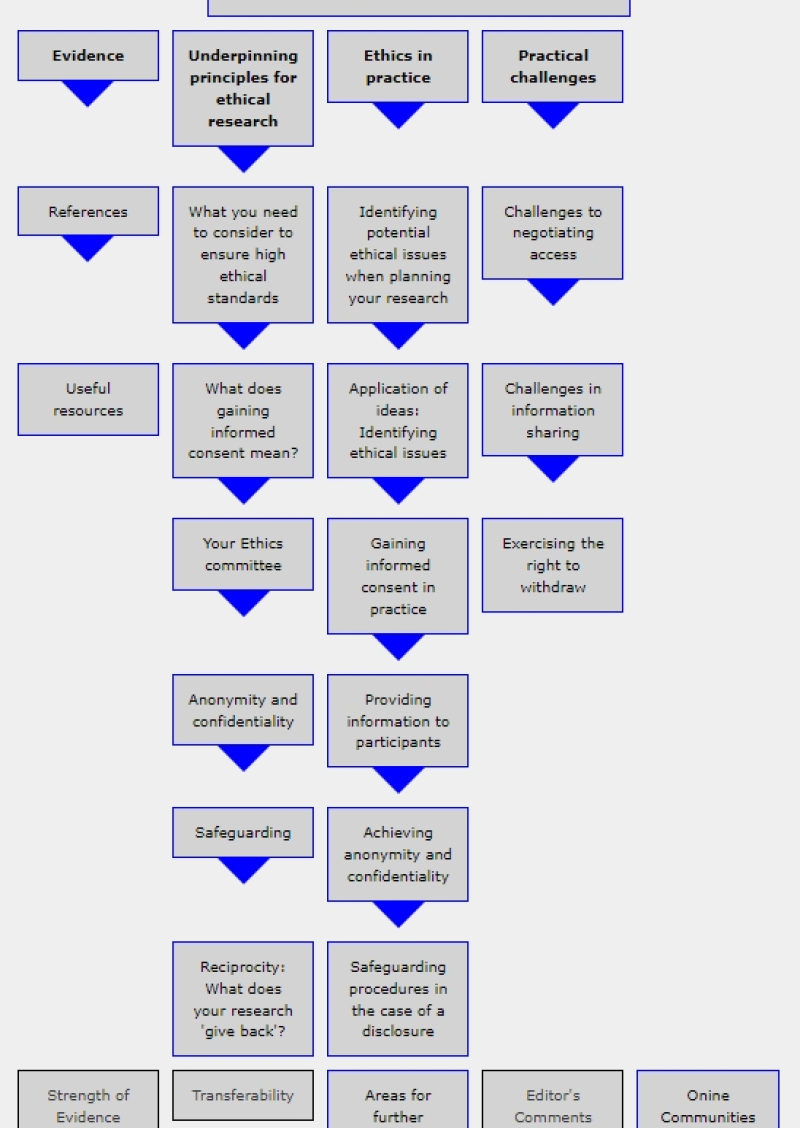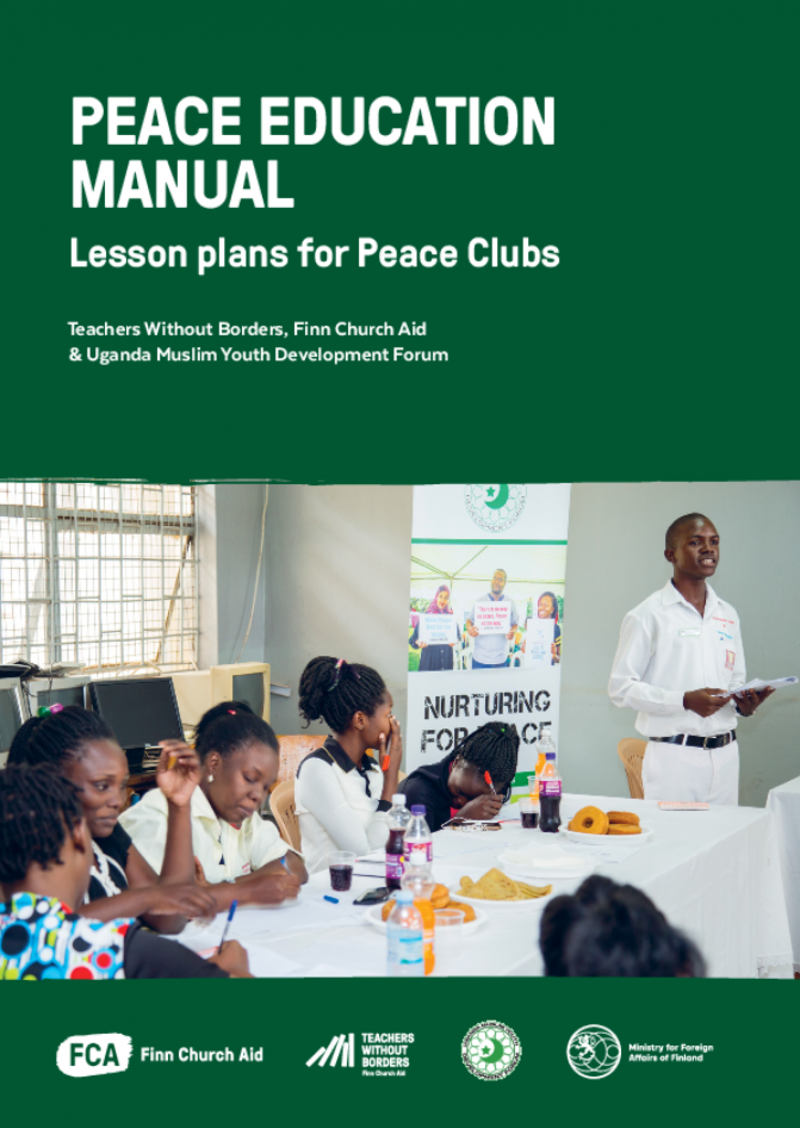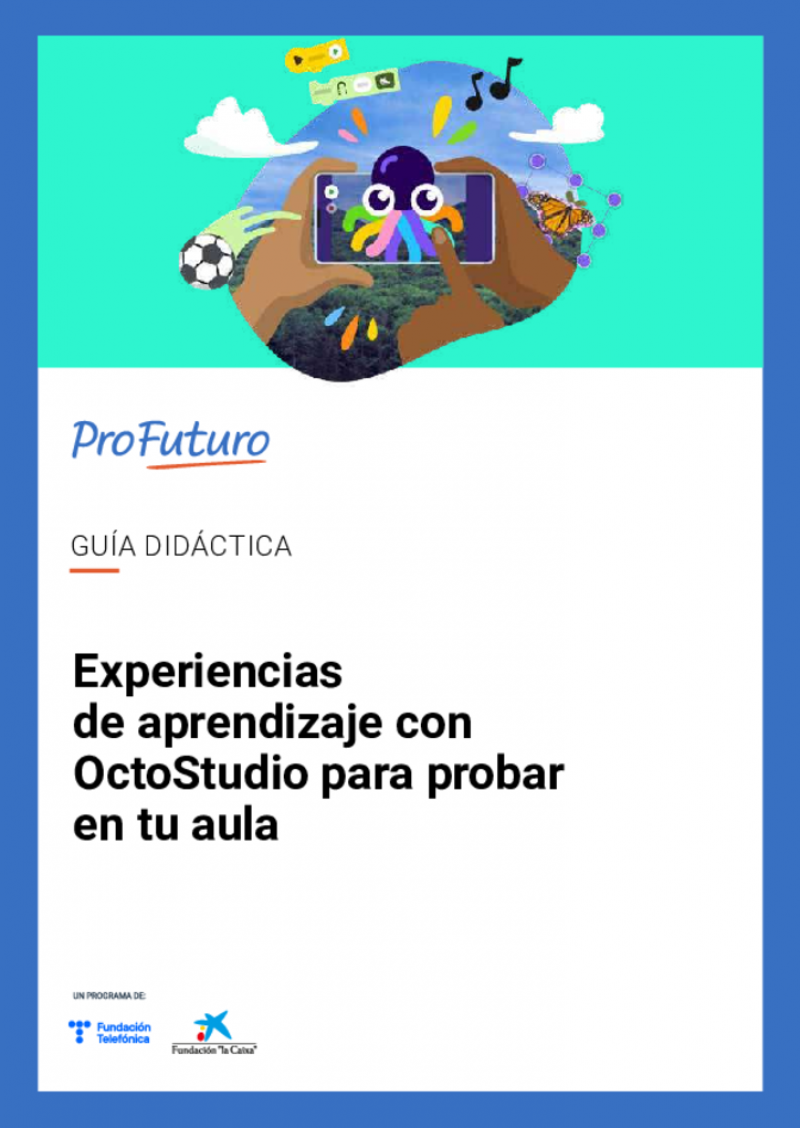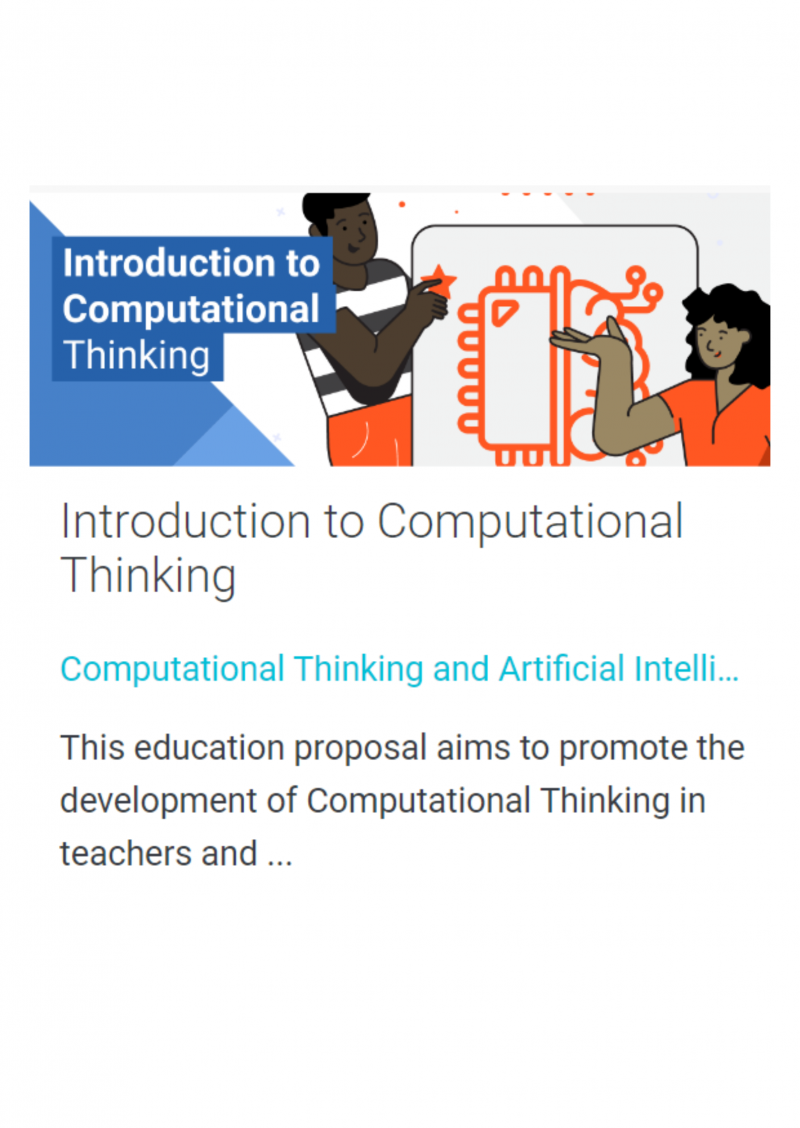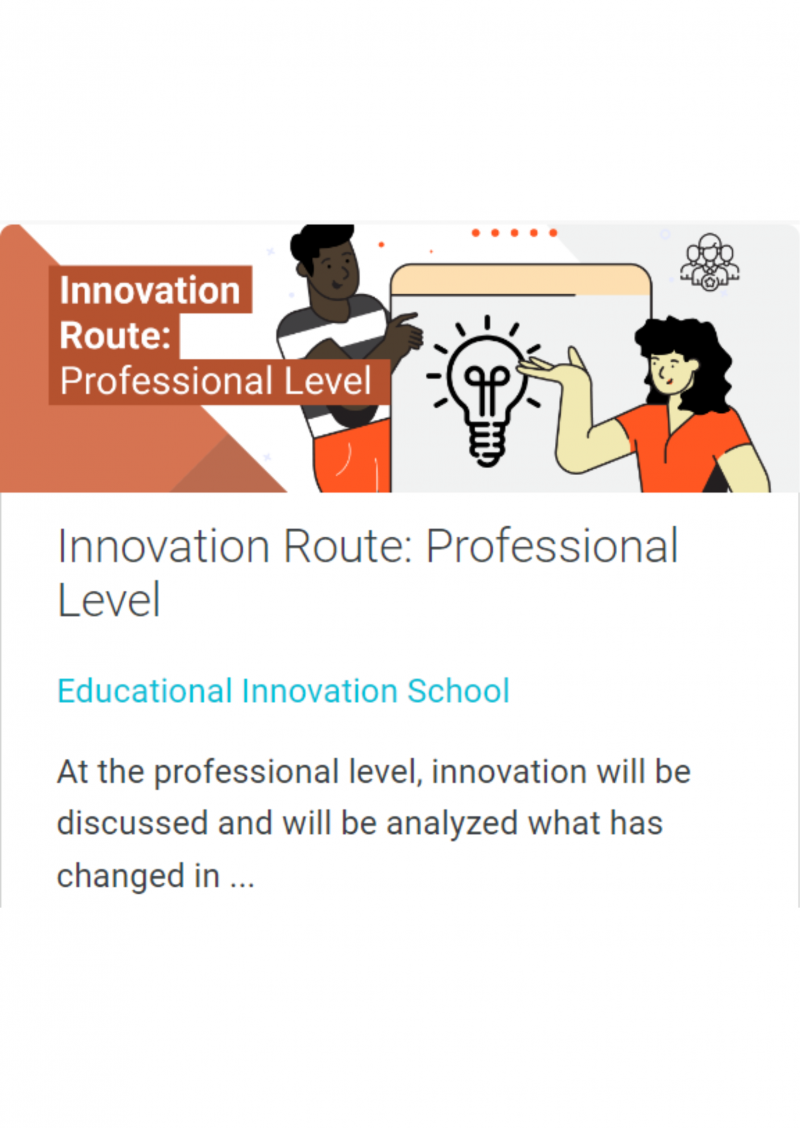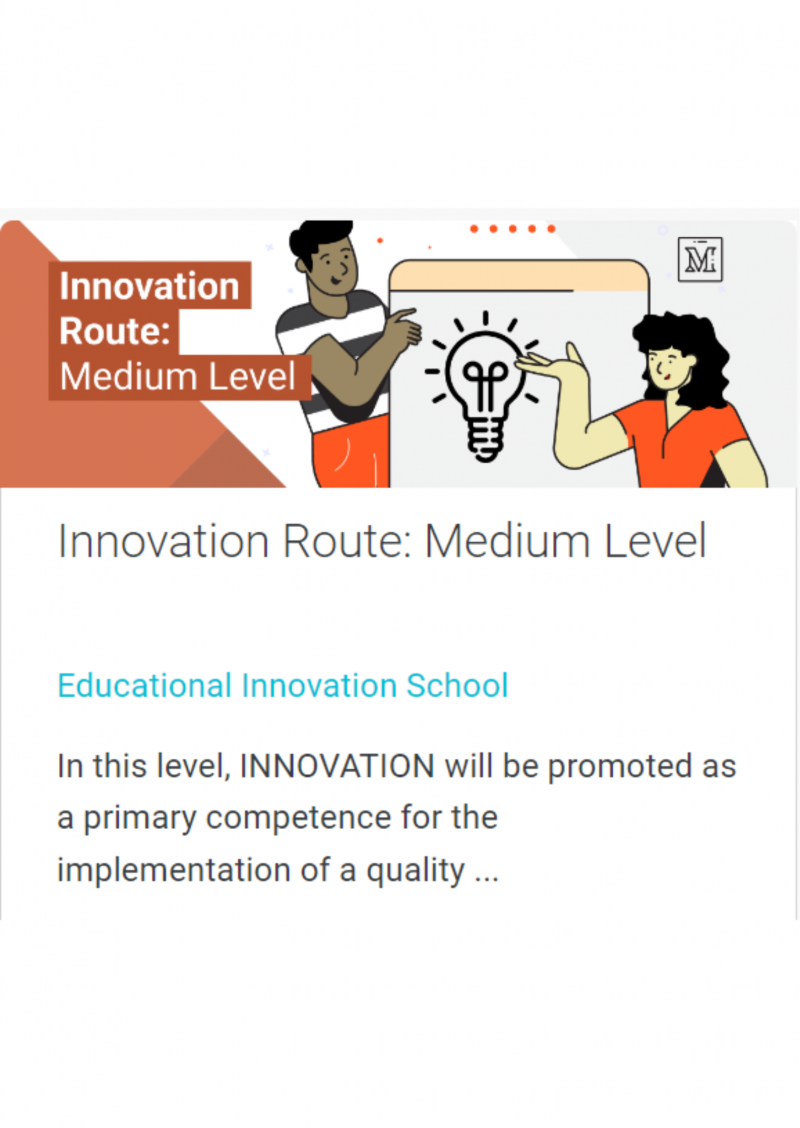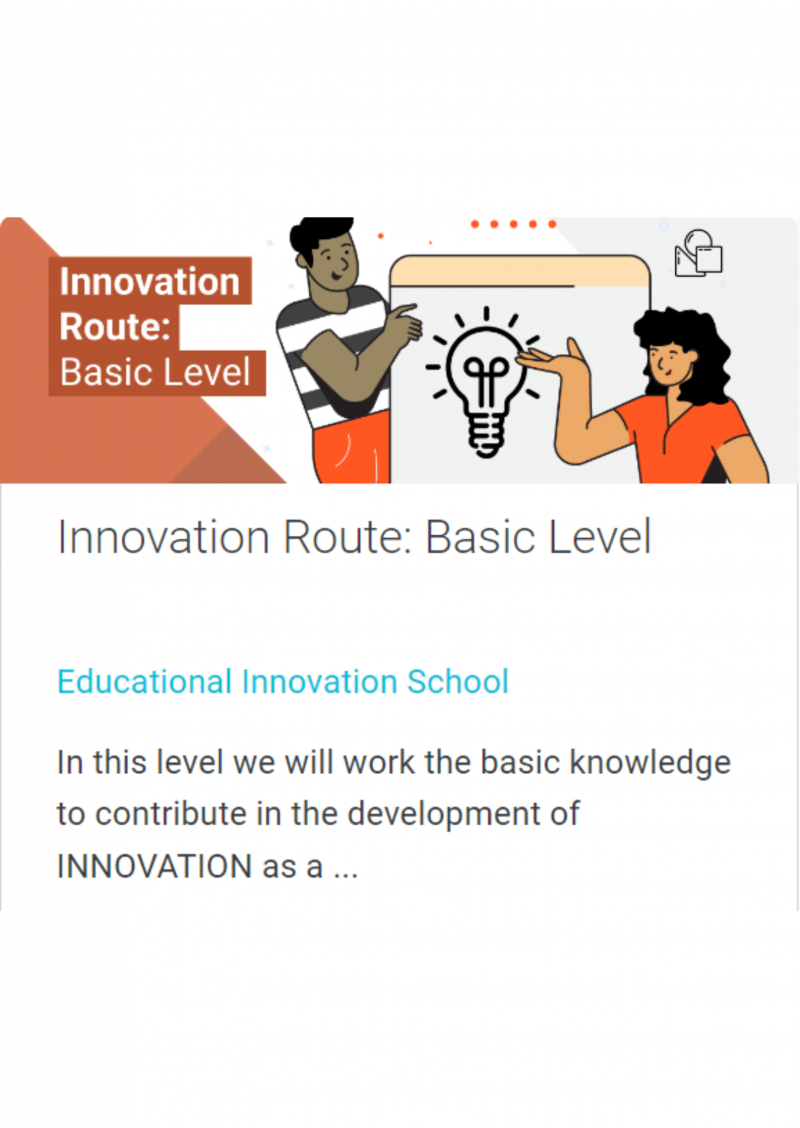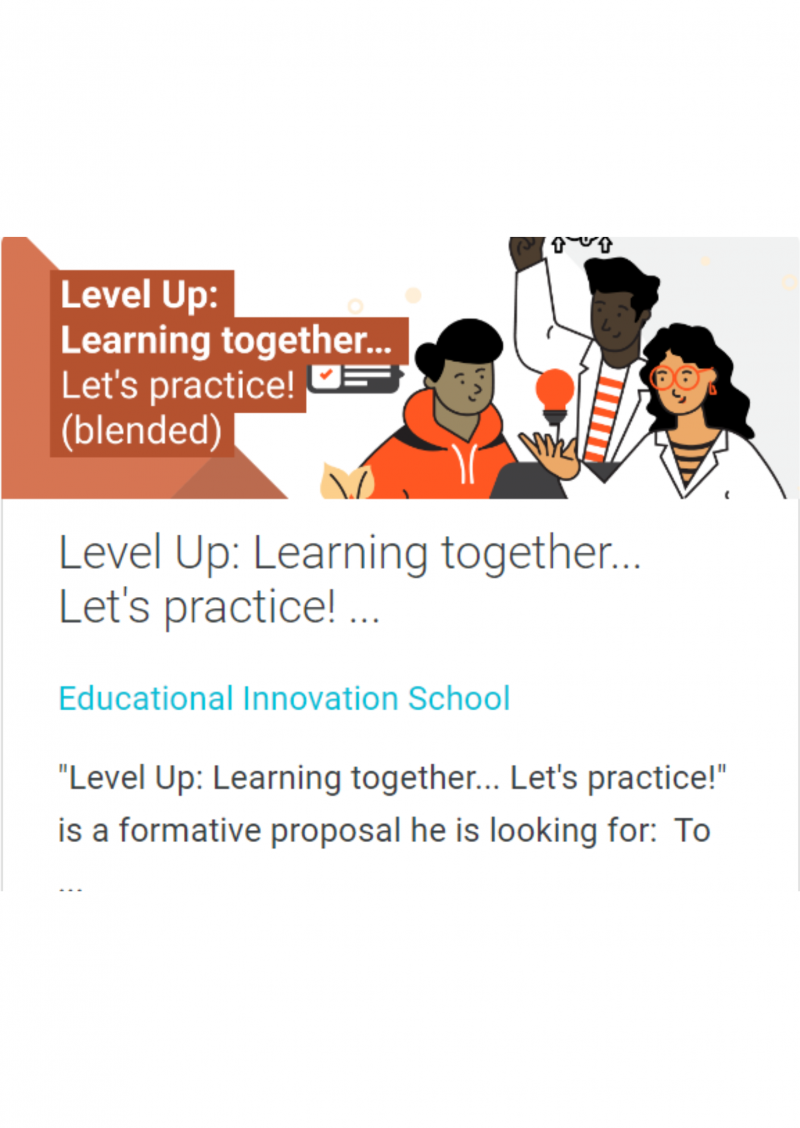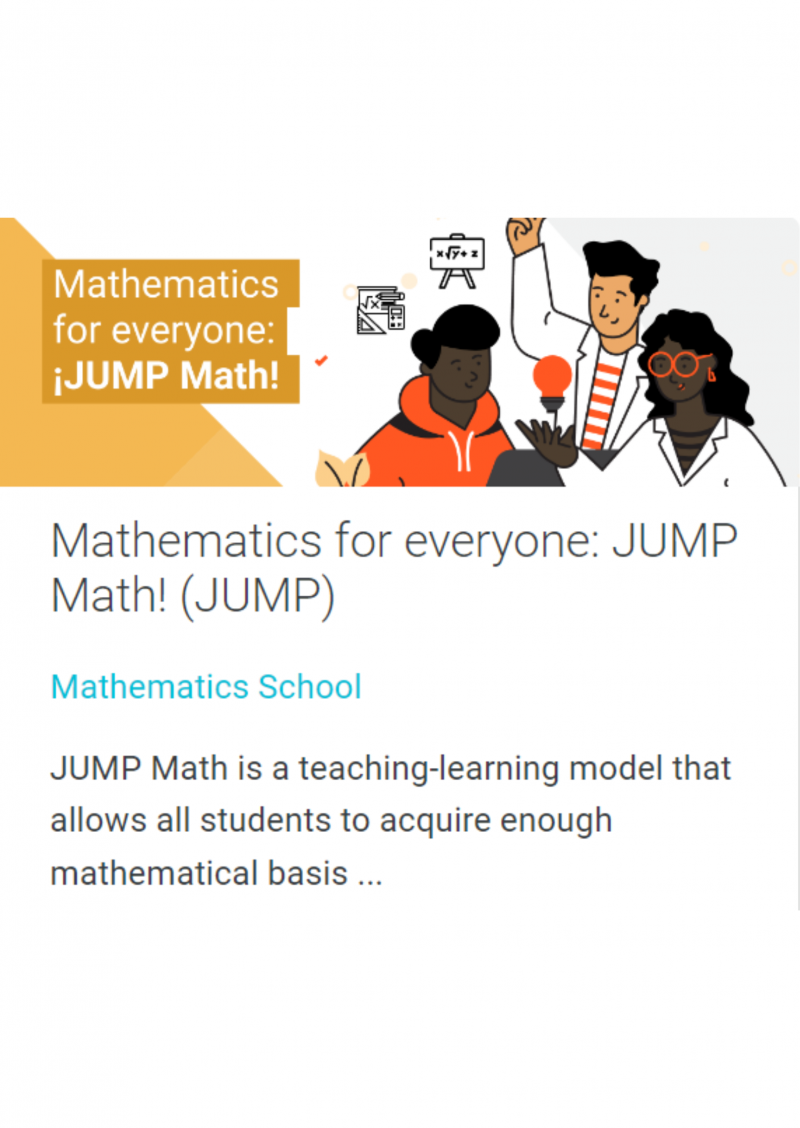Centro de Recursos para Docentes
Visualizar 21 - 40 de 71
The Social Emotional Educator | A Primer
This self-paced interactive course provides educators with an introduction to social and emotional learning. Using a variety of interactive tools and pedagogies, educators experience the need and value of SEL for themselves and its powerful transformational role in cultivating safe, supportive, and inclusive classrooms for their learners. course builds knowledge and awareness of social and emotional competencies for educators themselves and supports the application of pedagogical practices in classrooms that build these competencies in learners. It is rooted in the importance of positive relationships between educators, learners, and the larger community.
Assistive Technologies: Inclusive Teaching Guidelines for Educators
Assistive technologies encompass tools and services designed to enhance learners' independence, participation, and success, helping them reach their full potential. This guide explains how educators can use assistive technology to create an inclusive environment that supports diverse learning styles and information processing. It introduces various assistive technologies that cater to individual learner needs, helping them overcome challenges. Educators should view assistive technologies as resources for all students, integrating them into the classroom to ensure widespread benefit and minimize the risk of stigmatization.
Blueprint and Toolkit for School-Based Teacher Development: Secondary
Created by Bob Moon, this Blueprint and Toolkit offers guidance and resources to support a 12–15 week program. It provides a detailed framework that can be tailored to suit the specific needs of a country, region, district, or school. Aimed at institutions looking to strengthen school-based teacher development (SBTD) to enhance school performance and improve student achievement, this resource is available as Open Educational Resources (OER), making it accessible to policymakers and those involved in implementing teacher development systems.
"Section 4: The Teacher Toolkit: Secondary" is organised around ten key questions. In responding to each question, you will find general commentary on the issues involved and activities that you can try out with your classes. There are also some descriptions of other teacher’s experiences to provide further guidance for you. The accompanying Key Resources should be used alongside the Blueprint and Toolkit when working through each question. The most relevant Key Resources in each case are listed at the beginning of each question.
Research Methods: Developing your research design
This MESHGuide is designed to provide teachers with practical strategies to develop interesting and relevant research questions and to formulate a research design to engage in research-informed practice in their school or setting.
This MESHGuide draws on a range of key literature in the field of social science research, and it has been informed by lessons learned from the author's research. The guide aims to help teachers to:
- understand the purpose of a research design
- understand the significance of formulating a research question
- develop the initial focus of your research by exploring different potential starting points for this
- understand different ways of categorising research questions
- identify the characteristics of good research questions and apply these in practice
- develop and evaluate your own research questions
- operationalize your research aim so that you can develop appropriate research tools to answer your research questions by developing question-method connections in your own research
- improve your research data through understanding the nature of validity and reliability and exploration factors that could impact on these
Research Methods: Doing a literature review
This guide is designed to help teachers to:
- understand how to use other people’s writing to inform their own research;
- develop a strategy for carrying out a search of the literature;
- organise the themes logically;
- evaluate the research they read;
- think about the features of a reflective literature review and explore how to achieve this in practice
This MESHGuide draws on a range of key literature in the field of social science research. Also its design has been informed by lessons learned from the author's research, which has focused on the following areas:
- developing effective collaborative learning in science
- factors influencing learning through play in the early years
- student teachers’ engagement with research and its impact on their developing practice
- constructivist informed practice in science within initial teacher education
- creativity in learning and teaching.
Research Methods- Considering Ethics in your research
This MESHGuide draws on a range of key literature in the field of social science research ethics. It is designed to help teachers to:
- Understand the significance of ethical concerns in the research process
- Identify the nature of the ethical issues that may be of significance in the design and implementation of their research
- Develop their research design in a way that takes into account ethical considerations, so that their research is as ethical as possible
- Understand the complexity of the process of gaining informed consent and enable them to achieve this
- Reflect on the complexity of research ethics
Teaching and Learning with Living Heritage: A Resource Kit for Teachers
This resource kit includes several components that provide teachers with information on why and how to incorporate living heritage into their school based activities. It was developed as a result of the UNESCO–EU initiative on cultural heritage and education, under the European Year of Cultural Heritage in 2018, and it builds on projects across a variety of subjects developed by teacher from 10 countries.
Peace Education Manual. Lesson plans for Peace Clubs
This Peace Education Manual has been developed in collaboration with Finn Church Aid (FCA) Uganda, local partner Uganda Muslim Youth Development Forum (UMYDF) and Teachers Without Borders (TWB) Network Finland.
The manual was developed to strengthen the pedagogical and methodological quality of local peace clubs during the spring and summer of 2022. The contents of the manual were successfully piloted with more than 480 young people in eight lower secondary school peace clubs established and run by UMYDF with the support of FCA in Uganda. Two of the peace clubs are located in the Bidibidi Refugee Settlement, one of the largest refugee settlements in the world.
The material consists of 34 lessons plans and is primarily aimed for young people. The different sections and activities of the material can be used flexibly in training, clubs, or, for example, as individual lessons on peace building, socio-emotional skills, conflict resolution or cooperation skills. The exercises are functional, learner-centered and emphasize active participation of youth. The material is adaptable for use anywhere in the world.
FCA and UMYDF have been working together since 2016 in Uganda to promote the positive role of youth in conflict prevention and peacebuilding. In our work, peace education is defined as a holistic, multidisciplinary and transformative process that seeks to develop capacities that promote non-violent conflict resolution, respect for human rights and active participation.
How to Train 21st Century Teachers
Magdalena Brier, Managing Director at ProFuturo speaks with Mary Burns, ICT and teacher training specialist, about technology, education, teachers and the future. They delve into questions such as what skills a teacher must have to teach with technology, or what are the main obstacles that they encounter when trying to do so.
Watch this video to know more about the future of digital education and to listen to key advices on how to use technology in the classroom provided by Mary Burns who has a 40 years’ experience on teacher training.
Experiencias de aprendizaje con OctoStudio para probar en tu aula
Esta guía didáctica proporciona instrucciones detalladas sobre cómo descargar OctoStudio desde la web de ProFuturo, acompañadas de una introducción sobre cómo dar los primeros pasos en el uso de la aplicación. El objetivo principal es hacer que OctoStudio sea accesible para docentes de todos los niveles de experiencia tecnológica, facilitando así su implementación en entornos educativos diversos. OctoStudio es una aplicación desarrollada por el grupo Lifelong Kindergarten del MIT Media Lab que promete revolucionar la manera en que los educadores introducen la programación y el pensamiento computacional en las aulas.
ETF READY model
The European Training Foundation's READY model (Reference model for Educators' Activities and Development in the 21st century) offers a structured way to identify the professional practices and development needs of the 21st century educators.
Teacher booster videos
A series of learning videos for teachers and other actors in lifelong learning designed to boost their capacity to face the challenges of remote learning and raise awareness of the importance of key competences for all learners.It is an Open Education Resource produced under the European Training Foundation’s (ETF) Creating New Learning (CNL) initiative in close partnership with the European Commission’s Joint Research Centre.
Reset earth teaching toolkits
This toolkit provides teachers with ideas, activities, games and discussions to engage students on the issues of the ozone layer. It includes comprehensive lesson plans for the age ranges of 7-12 and 13-18 and a simulation-style game, all accessible through the education portal of the Apollo's Edition of the Reset Earth campaign.
Introducción al pensamiento computacional
Se considera al pensamiento computacional como la suma de un conjunto de procesos de pensamiento, habilidades y actitudes que brindarán la oportunidad a la infancia y a la juventud de romper con la brecha digital y social existente.
Para acceder al curso es necesario registrarse (gratuitamente) en la plataforma de ProFuturo.
Ruta innovación: Nivel profesional
En el nivel profesional se hablará de innovación, y se analizará qué ha cambiado en las metodologías pedagógicas. También se verán casos de éxito y propuestas de aplicación de estas metodologías que pretenden orientar a la identificación de los puntos de mejora, las necesidades y los problemas en el aula.
Para acceder al curso es necesario registrarse (gratuitamente) en la plataforma de ProFuturo.
Ruta innovación: Nivel avanzado
El objetivo en este curso es trabajar la innovación como competencia de transformación del sistema educativo. Se pone en prática la innovación mediante el desarrollo creativo de aplicaciones tecnológicas.
Para acceder al curso es necesario registrarse (gratuitamente) en la plataforma de ProFuturo.
Ruta innovación: Nivel medio
El objetivo de este curso es potenciar la innovación como competencia primordial para la implantación de un modelo de enseñanza-aprendizaje de calidad. En este nivel el docente conocerá experiencias educativas innovadoras que tendrá que llevar a la práctica en su centro educativo.
Para acceder al curso es necesario registrarse (gratuitamente) en la plataforma de ProFuturo.
Ruta innovación: Nivel básico
El objetivo de esta propuesta de desarrollo profesional docente es reflexionar sobre la importancia de la innovación y asentar las bases para el desarrollo de prácticas encaminadas a fomentarla. En este nivel se trabajarán los conocimientos básicos para contribuir al desarrollo de la innovación como competencia fundamental que favorece el éxito personal y profesional de los alumnos.
Para acceder al curso es necesario registrarse (gratuitamente) en la plataforma de ProFuturo.
Level Up: Aprendiendo juntos… ¡A practicar!
Es una propuesta que propone una serie de herramientas de práctica docente innovadoras y que busca fomentar la colaboración entre docentes.
Para acceder al curso es necesario registrarse (gratuitamente) en la plataforma de ProFuturo.
¡JUMP Math! Matemáticas al alcance de todos
El objetivo de esta formación es mejorar la preparación del profesorado de primaria en el área matemática inspirándose en la filosofía y metodología de JUMP Math, un modelo de enseñanza-aprendizaje que permite que todos los alumnos adquieran la base matemática suficiente para desenvolverse con confianza ante retos vitales y profesionales.
Para acceder al curso es necesario registrarse (gratuitamente) en la plataforma de ProFuturo.


